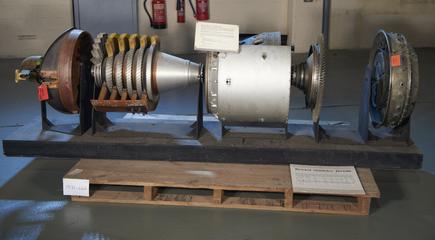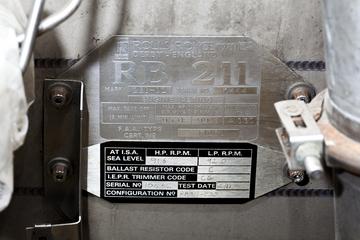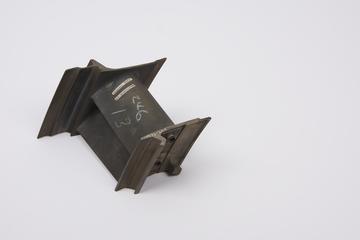


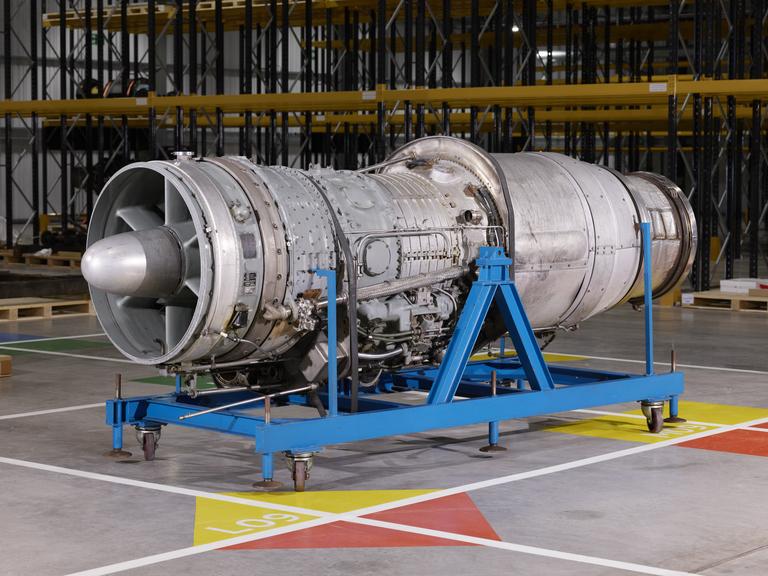
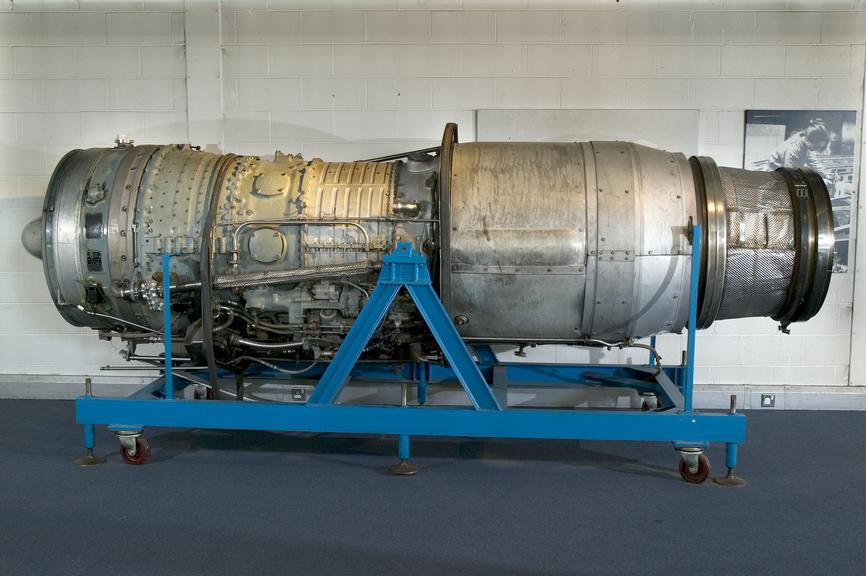
Olympus 201 jet engine, made by Bristol-Siddeley Engines Ltd, c.1960.
The Olympus was a turbojet engine, originally developed by the Bristol Engine Company around 1950 and used to power the Avro Vulcan bomber.
A fairly powerful engine by the standards of the time, the Olympus was one of the earliest two spool jet engines. In a single spool engine, the compressor and turbine blades, which suck air through the engine, are all attached to the same rotating shaft in the centre - so they all spin round at the same speed. In a two spool engine, some of the blades are attached to a second shaft. Each shaft can spin at different speeds, allowing a two spool engine, like the Olympus, to run more efficiently than a single spool engine does.
This particular Olympus was built by Bristol Siddeley Engines in around 1960 and is an improved model Olympus 201. It was used to power an Avro Vulcan Mk.2 aircraft and was later used by University of Salford for educational purposes. Later versions of the Olympus were used to power Concorde supersonic airliners and as the power plants of several warships.
Details
- Category:
- Aircraft Propulsion
- Object Number:
- Y1994.52
- Materials:
- metal (unknown), rubber (unidentified), paint, textile and plastic (unidentified)
- Measurements:
-
overall: 1750 mm x 4200 mm x 1400 mm,
- type:
- aircraft engine
- credit:
- Gift of University of Salford
